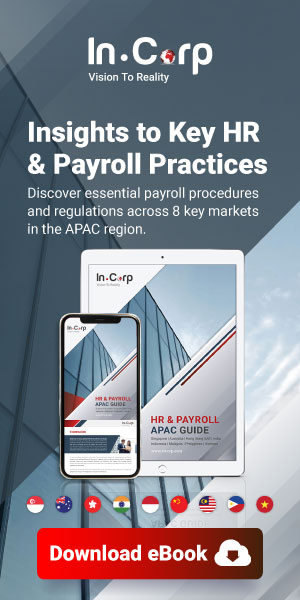
Embarking on the journey of growing your startup, especially in a thriving ecosystem like Hong Kong, can be both exhilarating and challenging.
This comprehensive guide walks you through the stages of a startup’s lifecycle—from early formation, securing Hong Kong startup funding, and leveraging government funding to venture-funded growth and the eventual exit phase.
Am I Running A Startup?
A startup is typically defined as a high-growth, highly scalable venture with ambitions to evolve into a profitable corporation. Startups are characterised by their rapid pace and significant growth potential, often requiring substantial initial investment and external funding to support swift research, development, and operations. Their ultimate goal is to compete with and disrupt established companies.
Knowing The Funding Stage of Your Startup
Understanding which stage your startup is at is crucial for securing the correct type of funding. The table below outlines each venture capital (VC) funding stage, helping you determine your current position.
Stages of Venture Capital: A Quick Glance
| Stage | Description | Sources of Funding |
|---|---|---|
| Pre-Seed |
|
|
| Seed |
|
|
| SeSeries A |
|
|
| Series B |
|
|
| Series C and Beyond |
|
|
Related Read: The Hong Kong Startup Ecosystem & Outlook 2024
Early & Growth Funding Stages
The initial phases of capital-raising include pre-seed, seed, and Series A funding. Early-stage fundraising drives growth, validates business plans and optimises products before scaling and commercial expansion.
Pre-seed Funding
Potential Investors:
- Founders’ funds
- Family and friends
- Early-stage angel investors
- Non-institutional, industry-specific private investors
- Accelerator programs
- Small business loans, crowdfunding
Seed Funding
Potential Investors:
- Angel investors
- Early-stage VCs
- Incubators & startup accelerators
Series A Funding
Potential Investors:
- Venture capitals
- Equity crowdfunding
Later Funding Stages
Securing Series A funding is just the beginning. The journey continues with Series B, Series C, and potentially Series D funding, each stage bringing you closer to significant growth and success through perseverance and strategic efforts.
Series B Funding
This stage typically involves raising funds from VC firms, often the same investors from previous rounds. Funds are used to expand the team and customer base.
Series C Funding
This stage indicates readiness to develop new products and expand into broader or international markets, preparing for an IPO or acquisition. Funding may come from VC firms, private equity, banks, and hedge funds.
A Checklist for Fund-Seeking Startup Founders
This guide serves as a checklist of deliverables for securing external funding in the early stages of development and financing: Pre-Seed, Seed, and Series A.
Pre-Seed Funding Checklist:
- A Scalable, Competitive, and Innovative Idea:
- Ensure your idea is scalable, innovative, addresses a market need, and can be explained effortlessly.
- Study the Feasibility of Your Business Idea
- Establish a Core Founding Team:
- Assemble a team with a common goal and create an organisational chart. Determine roles, responsibilities, compensations, and equity divisions.
- Release & Optimize Your Minimum Viable Product (MVP):
- Develop an MVP to test your idea with minimal cost and effort. Release it to gather feedback and iterate based on customer input.
- Register Your Business:
- Incorporate your business to protect personal assets and adhere to state and local requirements. Secure a business name, domain name, social media handles, and business cards.
Related Read: Top 10 Most Profitable Businesses To Start In Hong Kong 2024
Where to Apply for Startup Funding in Hong Kong?
Hong Kong’s startup ecosystem offers numerous public and private funding schemes to support rapid growth and expansion. Below is a non-exhaustive list of funding options for Hong Kong-based startups:
Early-Stage Funding Options
- CCMF (Cyberport Creative Micro Fund Professional Programme)
- CCMF-HKYEP (CCMF Hong Kong Young Entrepreneur Program)
- GBA Young Entrepreneurship Program
Incubation Programs
- CIP (Cyberport Incubation Programme)
- HKSTP Incubation for Technology Startups
- TSSSU (Technology Startup Support Scheme for Universities)
Post-Seed Funding Options
Startup Growth & Expansion
- BUD – Mainland Program
- SME EMF (Export Marketing Fund)
- TVP (Technology Voucher Programme)
Where To Next?
Entrepreneurs and business leaders eyeing Hong Kong’s thriving startup ecosystem face a landscape rich with opportunities and challenges. Successfully navigating the complexities of business incorporation, regulatory compliance, and ongoing management is crucial in this vibrant environment.
Begin your entrepreneurial journey with confidence by leveraging InCorp Hong Kong’s expertise. Whether you need advice on Hong Kong startup funding, regulatory compliance, or business incorporation, our team is ready to support you every step of the way. Reach out to InCorp Hong Kong today and take a decisive step towards a prosperous future in one of Asia’s most dynamic markets.
Frequently Asked Questions on Hong Kong Startup Funding & Government Scheme
Is Hong Kong good for startups?
- Hong Kong’s startup ecosystem is thriving, bolstered by a solid legal and financial framework, substantial government support, and robust infrastructure with excellent connectivity. This environment gives Hong Kong startups the necessary tools and resources for success.
How do I start a startup in Hong Kong?
- Familiarise yourself with local entities and organisations
- Choose a name for your company
- Decide on your company's legal structure
- Appoint a company secretary
- Select your company's official address
- Gather the required documents for incorporation
- Submit the paperwork to the Companies Registry
- Pay the necessary government fees
- Secure the required permits and licenses
- Ensure compliance with tax obligations and financial reporting standards
Read our full guide or contact our consultants directly.
What is the success rate of startup funding?
- Approximately 65% of Series A startups successfully secure Series B funding, while 35% do not. In the Maturity Stage, the failure rate drops to just 1%. Around 80% of eCommerce startups fail, resulting in a 20% success rate. Similarly, up to 75% of FinTech startups fail, leaving a success rate of only 25%.
How do I find investors for my startup?
- Leverage LinkedIn:
- Use LinkedIn to identify investors with shared interests.
- Utilise advanced filtering options to narrow down potential investors by country and firm.
- Ensure your LinkedIn profile is up-to-date with a catchy headline, an engaging summary, and relevant content.
Expand Your Network:
- Build relationships with angels and venture funds.
- Ask for introductions to investors with a track record in your industry.
- Be specific about why you are asking for an introduction and have an email ready to forward.
Meet Investors Where They Are:
- Frequent co-working spaces, hackathons, industry trade shows, and conventions.
- Participate in startup incubators, accelerators, and pitch competitions.
- Attend events like MeetFounders or TechCrunch Disrupt to connect with investors.
How will I know I got the right investor?
- Match Investor to Business Growth Cycle:
- Some investors seek high-risk, high-reward opportunities, while others prefer a steady, methodical approach.
- Choose investors who align with your business growth strategy.
Align Vision and Values:
- Ensure potential investors share your business vision and values.
- Assess their commitment to your principles, such as gender equity or long-term goals.
Understand Expectations:
- Be aware that investors may expect a board seat, decision-making role, or specific financial returns.
- Ensure their expectations align with your business direction.


